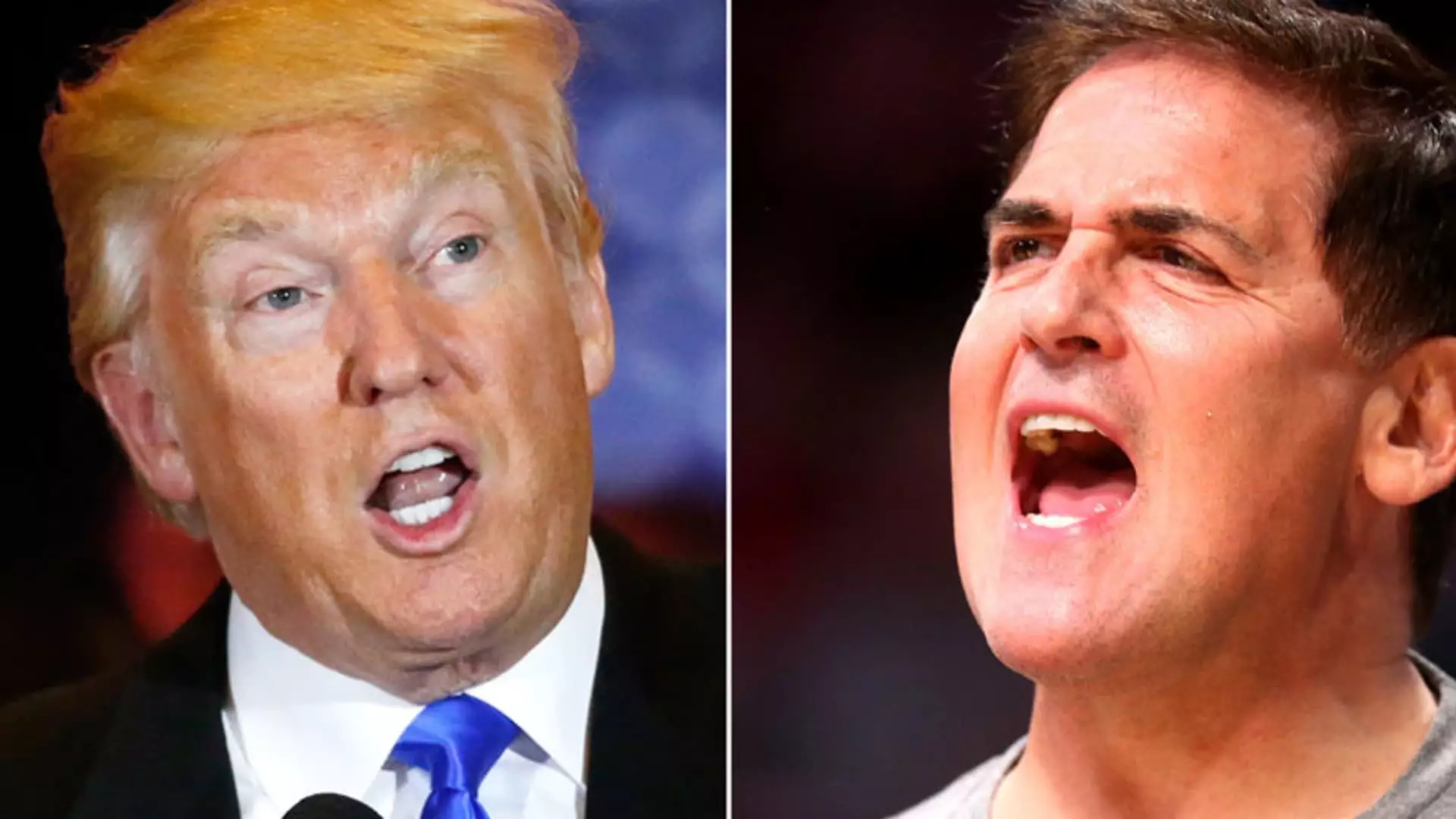The stark divide in American political affiliations becomes even more evident through the feuds among the nation’s wealthiest individuals. One of the most captivating and contentious battles is between former President Donald Trump and billionaire entrepreneur Mark Cuban. A recent social media tirade from Trump highlighted this animosity, setting the stage for an escalating rivalry marked by personal attacks and political maneuvers.
In a biting post on Truth Social, Trump labeled Cuban as a “loser,” underscoring their deteriorating relationship. He characterized Cuban as a “weak and pathetic bully,” dismissing his athleticism and credibility. This rhetoric serves as an illustration of how personal grievances manifest in public at a time when both parties are vying for supporters in a polarized political landscape. Trump’s criticisms stemmed from recent comments Cuban made regarding Trump’s approach to tariffs, which he publicly mocked at a campaign rally for Vice President Kamala Harris in Wisconsin. The contrast between jubilant campaign fervor and the vitriolic exchanges offers insight into how personal and political conflicts intersect among elite circles.
Cuban’s critiques are rooted in economic reality, particularly regarding Trump’s proposal for universal tariffs. Economists have weighed in against such measures, arguing that the financial burden would largely fall on American consumers rather than foreign entities. Cuban’s contention that Trump lacks understanding of the tariff system reflects a legislative and economic illiteracy that could have significant implications in a presidential race marked by economic promises. This economically driven spat highlights the tendency for wealthy individuals to use their platforms to influence broader discussions on relevant policies, often leading to misguided or oversimplified perceptions.
The history between Trump and Cuban is layered and complex, illustrating how alliances and rivalries evolve in the context of changing political landscapes. In 2015, they experienced a brief moment of camaraderie, with Cuban hailing Trump as a refreshing force in politics. However, this relationship soured dramatically when Cuban publicly endorsed Hillary Clinton in the 2016 election, further entrenching the divide between them. Over the years, their interactions have been characterized more by animosity than fellowship, as both navigate their own political paths within an increasingly charged atmosphere.
The clash between Trump and Cuban serves as a microcosm of broader societal divisions and the role that wealth and celebrity play in politics. With Cuban acting as a prominent surrogate for Vice President Harris, and Trump aligning himself with the likes of Elon Musk, the stakes in this billionaire rivalry extend beyond personal vendettas. Each player leverages their substantial platforms to sway public opinion, position themselves strategically, and stake claims in the political arena. As they grapple with their differences, one thing remains certain: their conflict will not only capture headlines but also shape the narratives surrounding the electoral landscape.


Leave a Reply